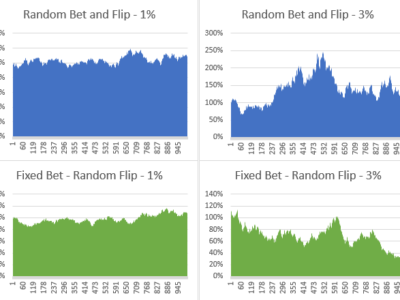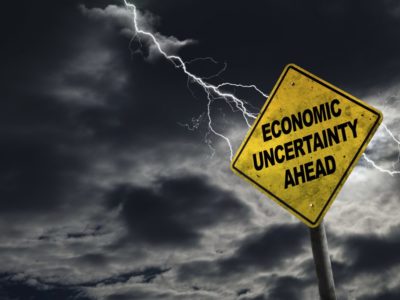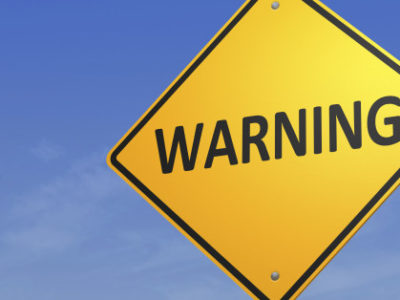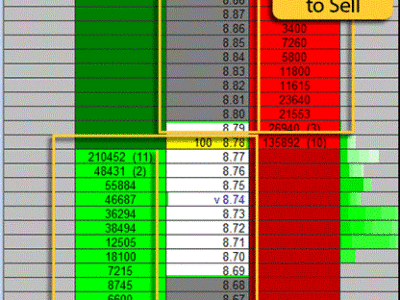Should You Paper Trade or Not?
Ahhh, the golden question…..I was wondering when this one would pop up….
Should I Paper Trade or Not?
The debate around the benefits and drawbacks of Paper Trading probably extends as far back as the origins of the financial markets itself.
Back in the day, before computers and the internet made it possible for everyone to easily gain access to price information, paper trading used to be when you would jot down, and keep track of prices as though you would have taken a real trade in the markets. In essence as a form of practicing how to invest or trade, without using real money.
You literally would write down on a piece of paper your entry, exit, trade size, profit or loss on each “practice” trade in the particular market you where hoping to eventually trade or investing in.
The idea being that once you have practiced long enough, and started seeing some real results on paper, you would then be ready to migrate to the big leagues and start placing real trades, risking real money.
Nowadays this practice has taken on an electronic format where online brokers offers you the ability to simulate trading via virtual trading accounts (often called Demo Accounts). In essence, and online practice account set up with a broker, where everything resembles real life trading except for the fact that the account is funded with “play or pretend” money.
For many, this introduction to the financial markets is a crucial component to gaining confidence and comfort in their own abilities in a relative “safe space”, before taking the big leap into real trading.
The Pro’s of Paper Trading
Some key reasons why people paper trade include:
- Helps you choose and become familiar with the trading platform you use.
- Practice new trades, strategies, products, enter and exit order types, all with real-time market conditions (without the risk).
- For Algo Traders – it allows you to test your robot or algorithm for automated trading.
- It gives one the space to fine-tune and adjust trading strategies and methodologies.
- Help increase confidence that you can place trades and execute strategies.
- For many beginners it also allows them the ability to start learning while saving up to open a real trading account.
Most online brokerage platforms have a paper trading/demo trading account that you can use for free, even without having to deposit any money with the broker as yet. This is great because it allows you to see if that particular broker’s platform fits your needs. If it doesn’t then you just switch to another as there are plenty brokers out there.
In my experience the two main reasons for people to use demo accounts are either individuals who do not have enough money to open an account yet but wants to start to “test-drive” trading, or which is more often the case, to gain confidence before risking their own, hard earned money.
While these are all strong and solid reasons to consider paper trading, let’s move on to some of the drawbacks of paper trading.
The Con’s of Paper Trading
Some key reasons to skip paper trading:
- Paper trading artificially allows you to be emotionally detached from the outcome of a trade (instead of learning how to do so in real life – which is a COMPLETELY different feat altogether!).
- Since trading is a long-term endeavor, one can question the true effectiveness of paper trading given that by its very nature, it can only be done for a short period of time.
- You can afford to be sloppy and inconsistent with no real effects.
- Most trading platforms do not allow all available functions on a paper trading account so you don’t get exposure to the full suite tools available.
- Paper Trading can definitely give you a false sense of security.
- Mentally it is very different from trading real money and does not give you real world experience.
I guess my biggest issue with paper trading is that it really is not a true nor accurate resemblance of real life trading. Acting with the acute knowledge that nothing bad can happen has a definitive influence over on one’s behavior (albeit subconsciously only).
Paper trading may give you a false sense of comfort that you are able to easily detach from your own emotions while trading. Also, without any real impact or consequence, if you make a mistake and do not analyze why you’ve made the mistake (or how you will ensure it does not happen again), you will most likely repeat the mistake when you start trading with real money in any event – this time perhaps with more disastrous consequences.
So should you paper trade or not?
I have a pretty straight forward opinion on this topic. I am not a big fan of paper trading. It is very very different from actual trading. I am a true believer in gaining actual experience in order to get better at anything. I don’t care how many “paper trades” you put on, none of that is a substitute for actual trading in the markets.
So instead of focusing on paper trading, I would instead promote that you rather spend the time to focus on controlling the things you can.
There are a ton you need to know BEFORE placing your first trade which can greatly assist you to mentally get over your trading inertia and fears.
In fact, understanding these basic principals is crucial preparation to ensure you enter the markets safely, irrespective of whether you have ever placed a real trade in your life or not!
These are:
- How to manage your emotions
- Understand how to limit your risk per trade
- Fierce protection of all your trading capital
- Start by only using indicators that require minimal interpretation
- Understand that you WILL lose – that is an unavoidable fact of trading.
- As such, gain familiarity with win-loss ratios
- Grab a Trading Journal and keep it updated
To be successful in the markets you have to be focused, take action, work smart and be dedicated. Paper trading doesn’t require any of that. Therefore in my opinion paper trading is pretty much useless as a tool to “learn” and “experience” what it is to trade.
As long as you stick to properly understand the basics I’ve highligted above you’ll be fine. The learning curve may be a bit steeper but trust me that you will get trading far quicker this way.
Anyone who paper traded will end up surprised at how materially different paper trading is to real trading and will end up having to learn all these points above in any event… usually the key they all miss is the impact of your own emotions.
Believe me,.. when your own real hard earned cash is at stake you will want to watch those screens with a bit more intent than when you were just paper trading
As highlighted earlier, one of the only reason I would use a paper trading account is to gain familiarity with the functionality of a specific platform, and at best this should only take you a few days at most to master, not weeks or months.
What?!.. you STILL want to paper trade!!
Ok, after having explored some pros and cons, and more particularly, where I stand on paper trading, I realize that some of you might still prefer to move forward in your trading journey by starting off with paper trading. That’s ok…
The one thing in trading is that you need to do what you feel comfortable with. Remember, this is a long term play and unless you do what comes naturally, chances are you probably wont have any longevity.
So, with this in mind below are three options to check out if you still want to paper trade.
A reminder that none of these are recommendations nor do I get paid for this. I truly just wish to make life as easy for you as possible to get going…
In my opinion, Think or Swim (TOS) has a great demo/paper trade account, and this platform is also very friendly for options traders. Then there is TradeStation, which has won many industry awards for it’s platform. Lastly is Interactive Brokers (IB) a very powerful platform that allows you to trade an incredible amount of markets around the world.
So – ultimately the decision is yours…
Happy Trading!
The post Should You Paper Trade or Not? appeared first on My Dad The Trader.
Source:: Should You Paper Trade or Not?














